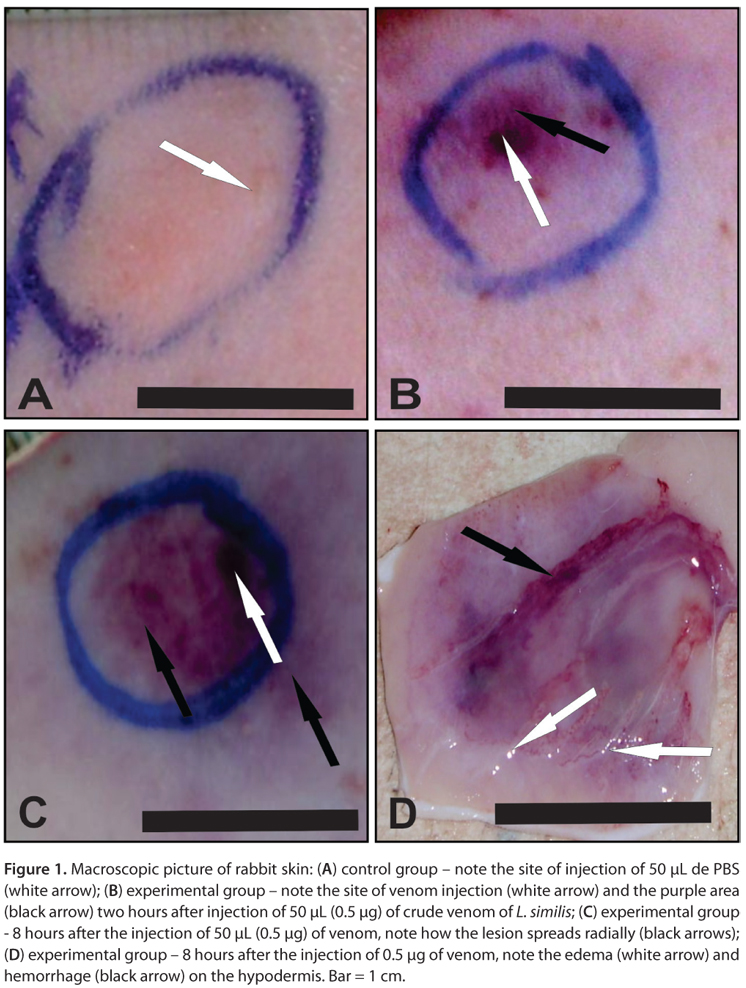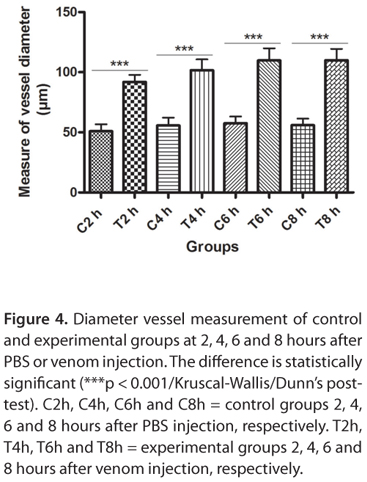Envenomation by Loxosceles bites is characterized by dermonecrotic and/or systemic features that lead to several clinical signs and symptoms called loxoscelism. Dermonecrotic lesions are preceded by thrombosis of the dermal plexus. Recent studies show that atheromatous plaque is prone to thrombosis due to endothelial cell apoptosis. To the best of our knowledge, there are no reports of microscopic dermal lesion and endothelial cell apoptosis induced by Loxosceles similis venom in the literature. Thus, the aim of the present study is to describe histological lesions induced by L. similis venom in rabbit skin and to elucidate whether apoptosis of endothelial cells is involved in the pathogenesis of loxoscelism. Forty male rabbits were split into two groups: the control group (intradermally injected with 50 µL of PBS) and the experimental group (intradermally injected with 0.5 µg of L. similis crude venom diluted in 50 µL of PBS). After 2, 4, 6 and 8 hours of injection, skin fragments were collected and processed for paraffin or methacrylate embedding. Sections of 5 µm thick were stained by HE, PAS or submitted to TUNEL reaction. Microscopically, severe edema, diffuse heterophilic inflammatory infiltrate, perivascular heterophilic infiltrate, thrombosis, fibrinoid necrosis of arteriolar wall and cutaneous muscle necrosis were observed. Two hours after venom injection, endothelial cells with apoptosis morphology were evidenced in the dermal plexus. Apoptosis was confirmed by TUNEL reaction. It seems that endothelial cell apoptosis and its consequent desquamation is an important factor that induces thrombosis and culminates in dermonecrosis, which is characteristic of cutaneous loxoscelism.
Loxosceles similis; loxoscelism; dermonecrosis; cutaneous loxoscelism; apoptosis










